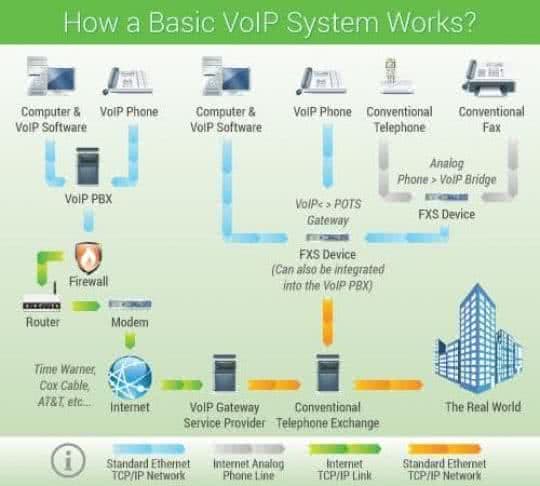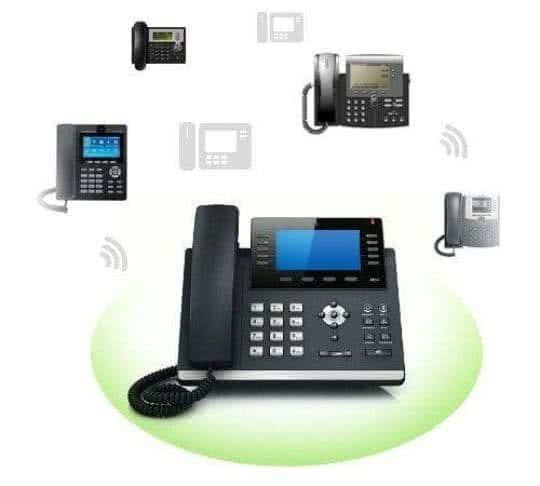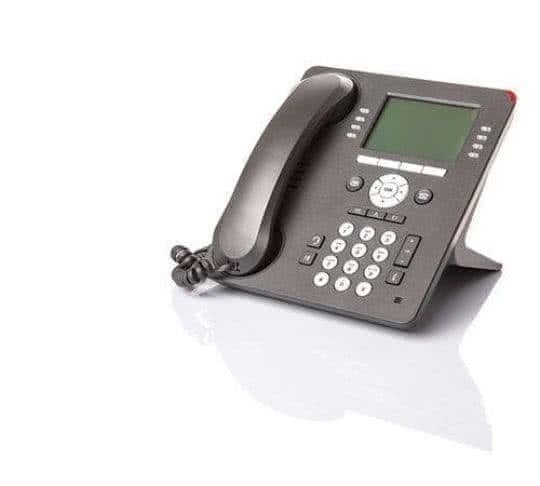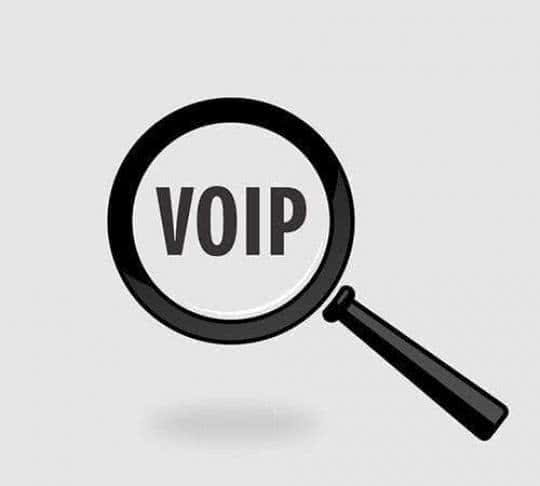Compare Top Business VoIP Providers of 2018

What is Business VoIP?
Business VoIP, also known as Business Voice over Internet
Protocol, is a phone system designed to match your business calling
needs.
Service options are available for both business and residential use. However, there is a major difference between the two: business calling plans have more of a focus on tools and enterprise features that businesses need to succeed, while residential calling plans have basic features and standard inbound/outbound calling.
Business VoIP is a way to make business calls via your broadband Internet connection instead of using traditional phone lines. Choosing a service plan is much more than just replacing a traditional phone line, though. These phone solutions include a PBX phone system along with advanced productivity and call management features.
While PBX phone systems and advanced productivity features are often considered add-ons with traditional phone companies, they are included with service. Furthermore, most of these providers also offer you the flexibility and mobility that a traditional phone company simply can't provide. Do yourself a favor and compare these different business phone service providers with your current phone service provider to see how they match up.
What is a PBX?
A Private Branch Exchange (PBX) is a specialized phone exchange system that routes inbound and outbound calls.
Today, you can choose from a variety of IP PBXs to improve your business phone system. Many business VoIP providers include the cost of a basic hosted PBX in your bill for a basic plan.
Nowadays, Hosted PBXs and Virtual PBXs are becoming more popular, especially for small or medium-sized businesses that want to save money on their monthly phone bill. Hosted PBXs are full PBX systems that are managed by your VoIP service provider at their data center, keeping you free of any incurred costs for equipment or constant maintenance. A Virtual PBX is a full PBX system hosted by cloud technology over the Internet. Both of these PBX solutions are extremely affordable, and work just as well as legacy PBXs...for half the cost! Choosing a Hosted PBX or Virtual PBX also helps you save on resources and space! Not to mention that it is much easier (and cheaper!) to let your provider make upgrades and perform maintenance on your PBX as opposed to hiring a technician.
If you feel more comfortable with an actual machine PBX, you can use an IP PBX (digital PBX) software or hardware system that supports VoIP calling. Do keep in mind, however, that these systems can be more costly than hosted or virtual systems (but are still cheaper than the antiquated legacy PBX systems).
What Features are Included with a Business VoIP Plan?
Plans offer many more included productivity features than a traditional PSTN.
|
|
How Can I Compare Business VoIP Providers?
Easily compare based on contracts, monthly pricing, included features, and user ratings.
The stars on the table are composite ratings from our user-submitted reviews. If you want to read reviews for an individual provider, click on the "Reviews" text to be redirected to their detail page. Reading user-submitted reviews is a great way to get the inside scoop and to find out if other users echo your sentiments on a particular company or service plan.
If you have a specific plan in mind or want to see a larger selection, try our directory of business VoIP providers. Or if you need more information in general, try some of our articles or FAQ section.
Looking for a VoIP quote tailored to your personal needs? Don't fret: we'll do the work for you. Just answer a few simple questions in our custom quote form, and we'll instantly connect you with top VoIP companies that can meet your needs.
While we do our best to keep the most current information on our site, these plan names, features, rates, and solutions can change. We recommend that you check individual company websites for specific quotes and plan details as well as read the fine print.
What is the Difference Between Business VoIP and a Traditional Phone Service?
VoIP gives users better call quality, more included features, and flexible options.
Not every business may be a candidate for VoIP, but a growing number of small to medium-sized businesses are switching over from their traditional phone service. With a business VoIP plan, customers enjoy:
|
|
What Do I Need to Know Before Switching to VoIP?
If you're ready to make the switch to a VoIP service, consider the following factors.
You should also ask yourself: is it important to keep my current number? If so, you'll want to be sure that your provider offers number porting. Number porting is a service offered through most VoIP providers (often listed under the plan's features), and it allows you to keep (or "port") your current number over to your new provider. Check with your service provider, as some providers offer this option for free, while others charge a nominal one-time fee.
Also, does your provider offer BYOD? If so, bringing your own phone to your new provider could help you save on equipment costs. Select providers offer this option or even provide you with free phones and ATA adapters.
Before you try to sign up with a business VoIP provider, you should make sure that you have a high-quality high-speed Internet connection. You need to have a good high-speed Internet connection in order to have high-quality calls. It is also important you have a good router in order for successful VoIP implementation. You need a device that is powerful enough to handle however many phones you expect to be connected to your VoIP network. Test your connection with our Speed Test.
You should also be aware that a power loss will result in the loss of a VoIP service. If you don't have a backup source of power, your VoIP phone line won't work. Be sure to get a backup generator or a battery for your Internet connection in case of a power outage.
Source:
https://www.voipreview.org/business-voip






Komentar
Posting Komentar